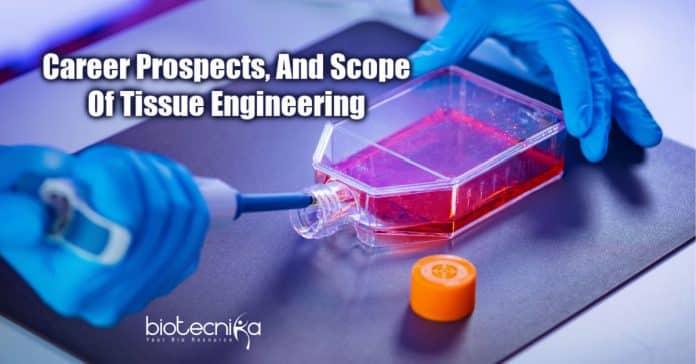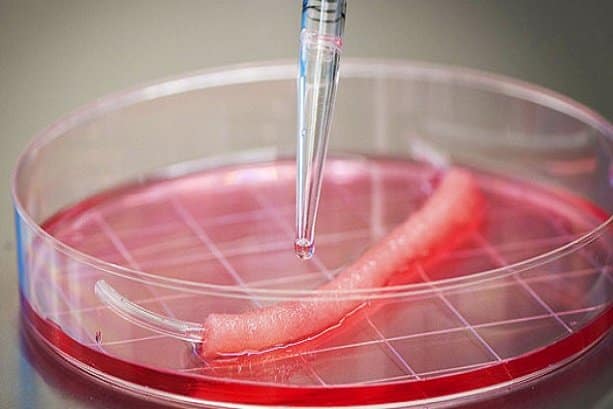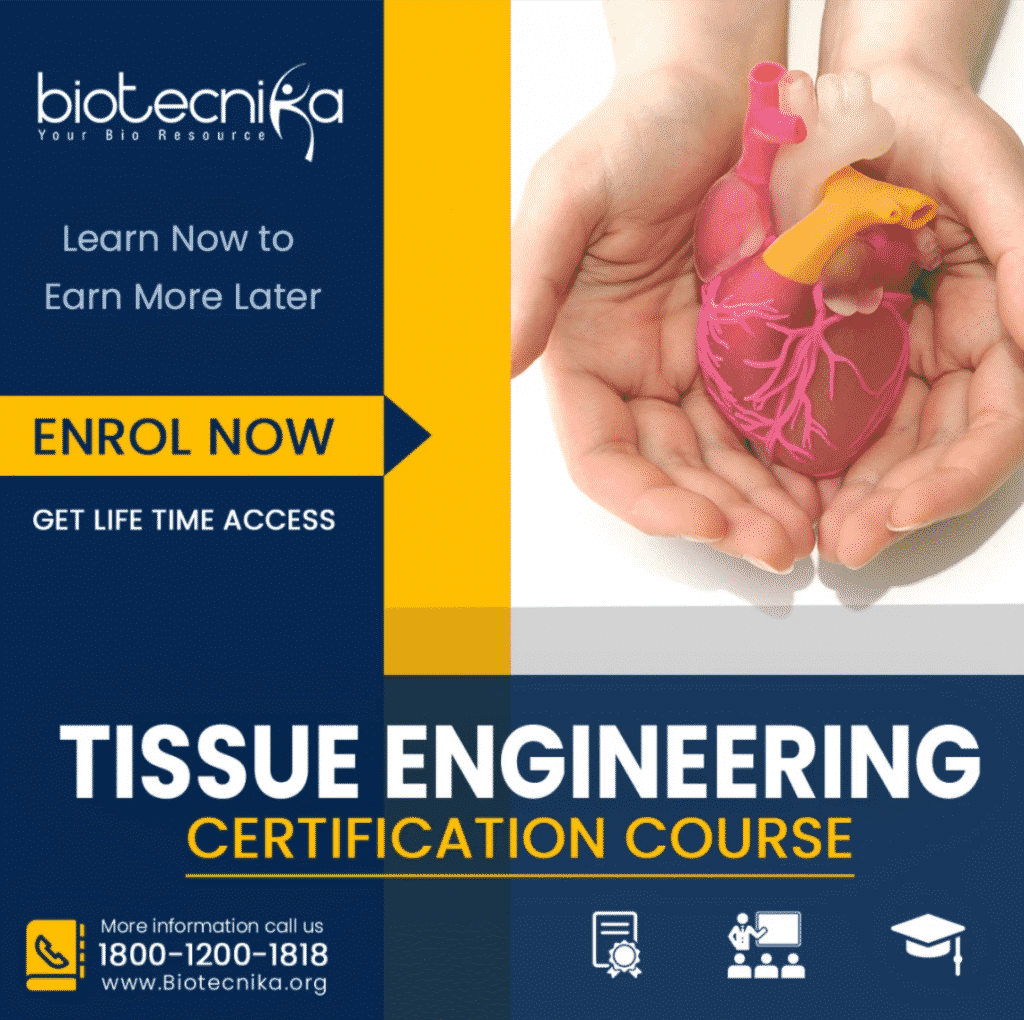Tissue Engineering – Career Prospects and Scope
Tissue engineering is the discipline that uses concepts of Biology and Engineering in the development of functional substitutes for damaged tissues. It is a multidisciplinary field that develops functional 3D tissues combining scaffolds, cells, and/or bioactive molecules. It is the application of science to develop, recover, and repair the damaged tissues or the entire organ. This field makes tissues functional by incorporating scaffolds, cells as well as biologically active molecules.
Tissue engineering is a specific branch under biomedical engineering (bioengineering). This area includes scientific areas like cell biology, molecular biology, medicine, chemistry, and material science. This discipline emerged from the field of biomaterials development and indicated the method of integrating scaffolds, cells, and biologically active molecules into functional tissues.
Tissue engineering professionals fall under the more comprehensive field of biomedical engineering. Tissue engineers are not just part of the biomedical field, however a part of the wider engineering network. They grow tissues in laboratories to replace or repair body parts as well as organs. This article will discuss the Tissue Engineering – Career Prospects, Scope, Job Opportunities, Eligibility, Top Companies, etc.
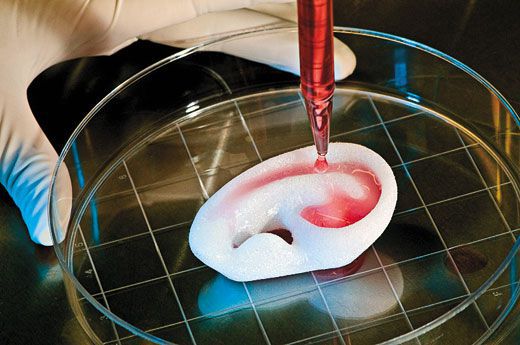
Applications of Tissue Engineering
- Tissue Engineering For Regeneration of Damaged Cells – Bone tissue engineering, Cartilage tissue engineering, Heart tissue engineering, Pancreatic tissue engineering, Vascular tissue engineering.
- Tissue Engineering for Modeling Human Physiology – Cancer, Drug discovery.
- Tissue Engineering is in surgery to transplant skin, in case of a severe burn/injury.
- Tissue Engineering is used to analyze the effect of certain chemicals or drugs (under development) on living cells without sacrificing lab animals and without putting humans at risk.
- Tissue Engineering is used in Dentistry.
- It is used in cardiovascular repair, Neural repair, Skeletal muscle repair, etc.
- In vitro meat – Artificial meat prepared under in vitro conditions.
Few examples of tissue-engineering
- Bioartificial liver device
- Artificial pancreas
- Artificial bladders
- Cartilage
- Tissue-engineered airway
- Tissue-engineered vessels
- Artificial bone
- Artificial bone marrow
- Tissue-engineered oral mucosa
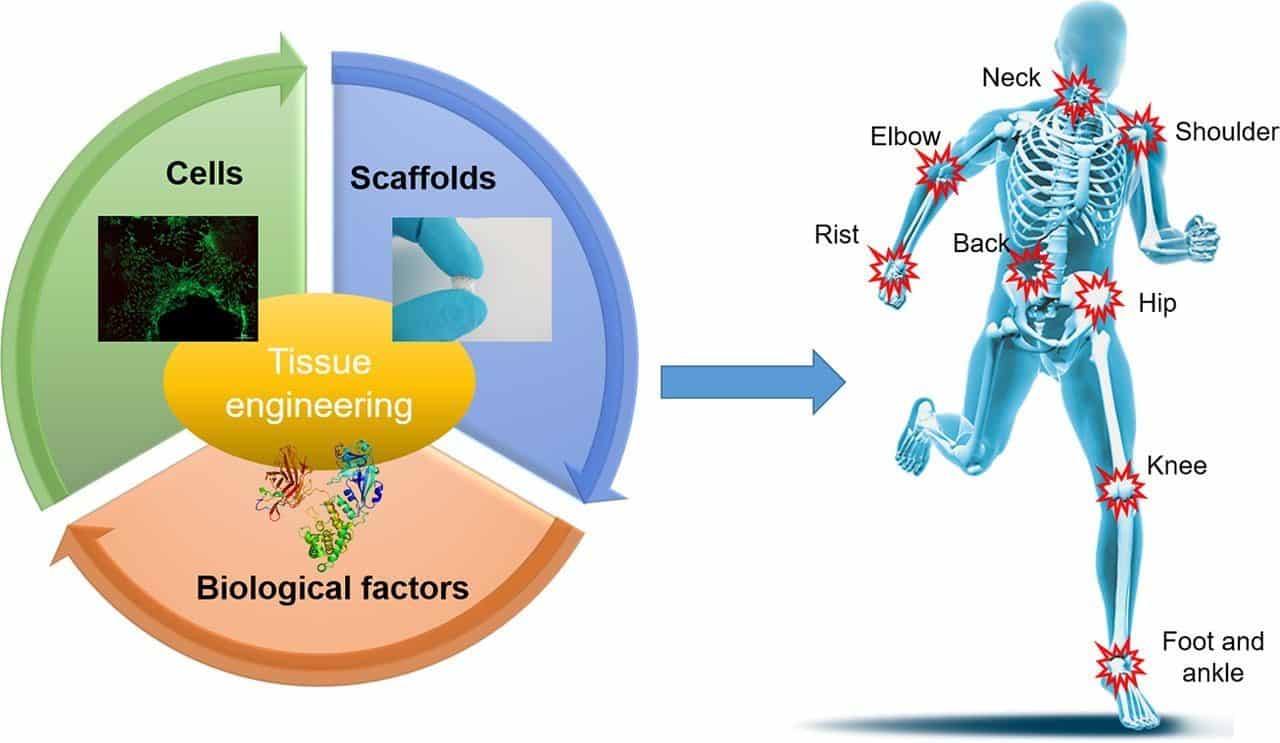
Eligibility and other requirements:
Have a background in medical engineering, biology, math, and science.
Students can pursue degrees in such areas as biology, chemistry, engineering, or other related fields. Students can pursue a postgraduation degree in Tissue engineering and further higher studies from a recognized university to succeed as a tissue engineer.
If you plan to study abroad, the universities may ask for an IELTS score and other requirements as per the college/universities.
Skills Required
- Outstanding organizational skills with great focus on detail.
- Be capable of independent as well as teamwork.
- Great communication skills.
- Critical thinking.
- Skills to solve complex medical problems.
- Multitasking skills, versatility, and adaptability to a dynamic and challenging environment are required.
Internships
Internships are vital in this field. Internships provide you with hands-on training in crucial subjects topics that would greatly help you gain a good career. There is a lot of internships available for Tissue engineering. Choose the internships based on your interests and the type of job you wish to do in the future, which will help you learn how that particular sector works.
Roles:
- Design biomedical equipment and devices, such as artificial internal organs, replacements for body parts, and devices for diagnosing diseases.
- Install, adjust, maintain, repair, or provide technical support for biomedical equipment
- Evaluate the safety, efficiency, and effectiveness of biomedical equipment
- Functional, histological, molecular biology, and biochemical analyses.
- Cell isolation and cell and tissue culture.
- Image processing and analysis.
- Provide training in the field of work.
- Develop protocols, and compose technical reports.
- Present research findings to scientists, nonscientist executives, clinicians, hospital management, engineers, other colleagues, and the public.
- Conduct research needed to solve clinical problems.
- Work in research and development or quality assurance.
- Research and Development.
- Developing cell and tissue engineering-related novel products.
Jobs Profiles of a Tissue engineer
- Researcher
- Quality manager
- Scientist
- Product manager
- Project supervisor
Where can tissue engineers find jobs?
- Analytical development and quality control department
- Development, manufacturing, and quality assurance of biotechnology and pharmaceutical products
- Process development
- Research institutes
Tissue Engineering Certification Course
Salaries for Tissue Engineers
- Salaries of Tissue Engineers range from 158,000 INR to 504,000 INR per year.
- The median salary of a tissue engineer is 329,000 INR per year.
International Tissue Engineering companies
- Orthocell
- Anteris Technologies
- Avery Therapeutics
- 3-D Matrix
- Histogen
- Prellis Biologics
- 3-D Matrix
- Revotek
- Cerapedics
- Bio-Tissue
Global Institutes to pursue Tissue engineering
- The University of Leeds, England
- University College, London
- Swansea University, Wales
- The University of Manchester, England
- Tampere University, Finland
Colleges in India to pursue Tissue Engineering
- Manipal Institute of Regenerative Medicine Study Discover, Bengaluru
- University Of Madras, Chennai
- Chettinad Academy Of Research And Education, Chengalpattu
- Pramukh Swami Science & H.D.Patel Arts College ( PSSHDPAC), Kadi
Biotecnika’s Tissue Engineering Certification Course – Click here to Boost your knowledge of Tissue Engineering.
Tissue Engineering Certification Course
Future Scopes of Tissue Engineering
Currently, tissue engineering plays a fairly small role inpatient therapy. Artificial skin, valves, Supplemental bladders, small arteries, trachea, and cartilage are some instances of engineered tissues that have actually been approved by the Food and Drug Administration.
Complicated body organs like heart, lung, and liver cells have actually been effectively recreated in the laboratories.
These tissues, nonetheless, can be fairly beneficial in research, particularly in drug development. Utilizing functioning human tissue to aid screen drug candidates might speed up development and also give vital devices for assisting in customized medication while conserving money as well as minimizing the number of animal models utilized for the study.
Organ deficit and suboptimal prosthetic or biological materials for repair or replacement of diseased or destroyed human organs and tissues are the foremost motives for advancing research in the upcoming discipline. No organ or tissue is eliminated from this interdisciplinary research discipline, which intends to give crucial tissues with the ability to function, grow, repair, and remodel.
Tissue Engineering – Career Prospects, and Scope


























